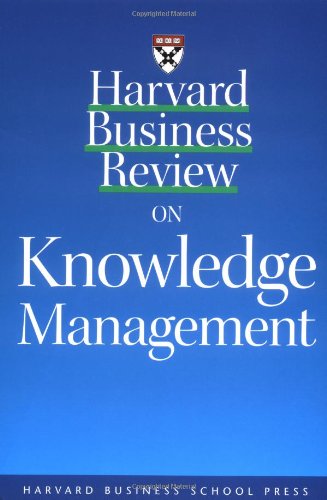Why did I choose this resource?
I chose to read this source because I truly believe that managing human intellect in the correct strategic way is what is most important in propelling a company forward in today’s rapid changes.
 What did you learn from it?
What did you learn from it?
I learned that professional intellect creates most of the value in the new economy. Some of the best practices for developing professional intellect are recruiting the best people, forcing development and increasing challenges, and evaluating. Some large organizations practice these few things such as Merrill Lynch and NovaCare.
Key Knowledge
- The value of intellect increases markedly as one moves up the scale from cognitive knowledge to self-motivated creativity
- The best organizations push their professionals beyond the comfort of their book knowledge
- The tendency of each profession to regard itself as an elite with special values may get in the way of cross-disciplinary sharing
- At Merrill Lynch, people share knowledge because their compensation is attached to the mosaic of peer relationships
- How groups communicate is as important as the knowledge each center of excellence may have
What is Professional Intellect?
The true professional commands a body of knowledge- a discipline that must be updated constantly. The professional intellect of an organization operates on four levels, presented here in order of increasing importance.
- Cognitive Knowledge – is the basic mastery of a discipline that professionals achieve through extensive training and certification. This knowledge is essential, but usually far from sufficient, for commercial success.
- Advanced Skills – translate “book learning” into effective execution. The ability to apply the rules of a discipline to complex real-world problems is the most widespread value-creating professional skill level.
- Systems understanding- is deep knowledge of the web of cause and effect relationships underlying a discipline. It permits professionals to move beyond the execution of tasks to solve larger and more complex problems- and to create extraordinary value. Professionals with know-why can anticipate subtle interactions and unintended consequences. The ultimate expression of systems understanding is highly trained intuition- for example, the insight of a seasoned research director who knows instinctively which projects to fund and exactly when to do so.
- Self-motivated creativity- consists of will, motivation, and an adaptability for success. Highly motivated and creative groups often outperform groups with greater physical/financial resources.
How can we as a company or individuals use this?
By striving to define, develop, and leverage professional intellect, we can best use our resources to further benefit our future endeavors.

